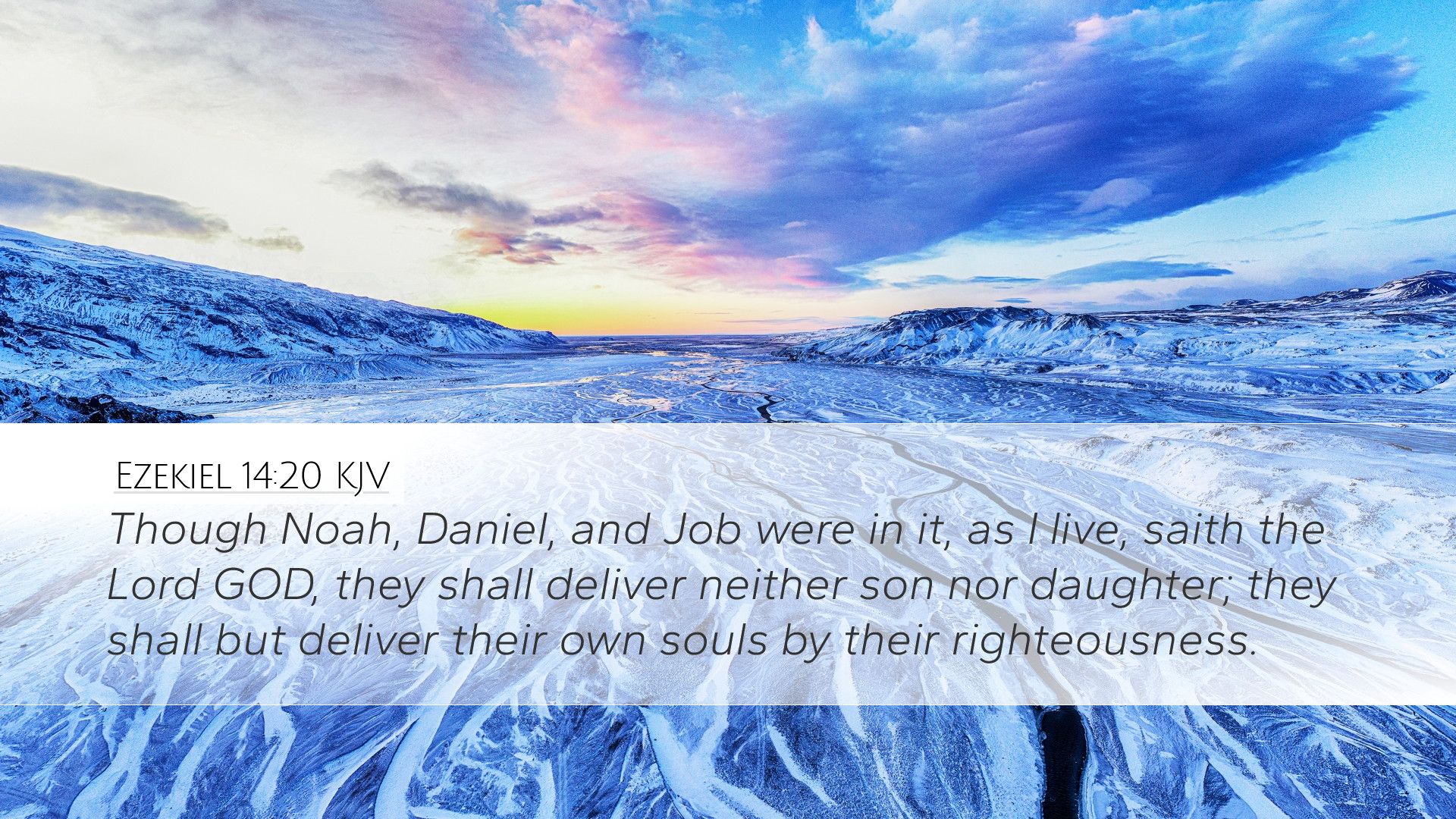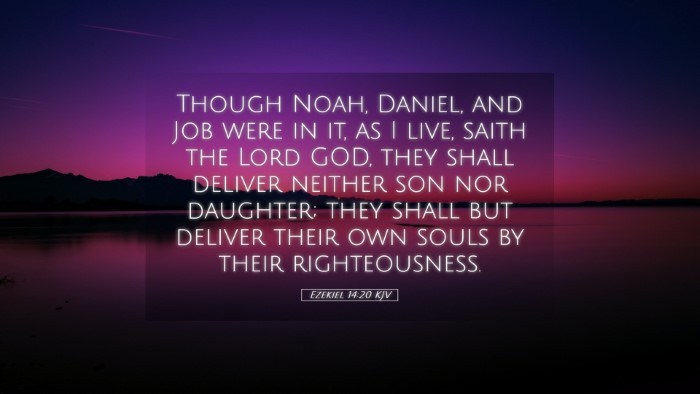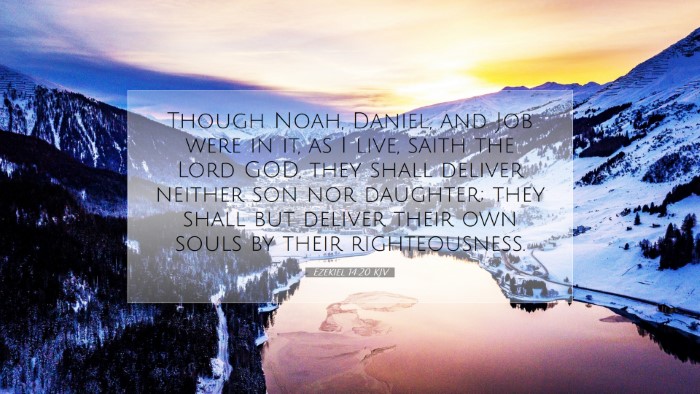Commentary on Ezekiel 14:20
Ezekiel 14:20 states:
“Though Noah, Daniel, and Job were in it, as I live, saith the Lord God, they shall deliver neither son nor daughter; they shall but deliver their own souls by their righteousness.”
Understanding the Context
This verse is part of a larger discourse in which God communicates to Ezekiel the severity of impending judgment upon Jerusalem due to the persistent idolatry and sinfulness of the people. The mention of Noah, Daniel, and Job serves to highlight the idea that the righteousness of individuals cannot substitute for the corporate sinfulness of a nation.
Insights from Public Domain Commentaries
Matthew Henry's Commentary
Matthew Henry describes this verse as an emphatic declaration of divine justice. He notes that the three righteous figures—Noah, Daniel, and Job—represent the utmost examples of piety and moral rectitude in biblical history. Henry emphasizes that these men were known for their personal righteousness, yet their individual merits would not save the people of Jerusalem from God's judgment. The phrase "they shall deliver neither son nor daughter" emphasizes the aspect of personal responsibility, indicating that while these figures could save themselves through their righteousness, they could not intercede for others.
Albert Barnes' Notes on the Bible
Albert Barnes provides insight into the symbolism of the three figures mentioned. He explains that Noah is seen as a symbol of deliverance through faith amidst judgment, while Job embodies patience in suffering and fidelity to God's commands. Daniel represents wisdom and insight. Barnes posits that by invoking these figures, God underscores the gravity of the situation: even the most righteous cannot save others. Each individual's accountability before God is paramount. The verse suggests a call to personal righteousness, encouraging each person to pursue their relationship with God sincerely.
Adam Clarke's Commentary
Adam Clarke elaborates on the idea of personal righteousness versus collective guilt. He discusses the principle that while a few may be righteous, their righteousness cannot shield an entire community from the consequences of their collective actions. Clarke notes that the phrase "as I live" speaks to God's eternal existence and truthfulness, affirming that judgment is inevitable. He also indicates that the "souls" of Noah, Daniel, and Job should be understood as reflective of their personal integrity—each would deliver themselves by their righteousness, but this does not extend to those around them. Clarke also remarks on the serious implication for the people of Israel, where individual and communal sins lead to shared consequences.
Theological Implications
This verse raises significant theological points about the nature of salvation, righteousness, and divine judgment:
- Individual Accountability: The need for each person to engage in personal righteousness regardless of their social or familial context.
- The Limit of Intercession: Even the greatest intercessors cannot save others if they themselves do not repent and seek God.
- Judgment and Righteousness: It emphasizes the holy nature of God, who cannot overlook sin, regardless of the presence of the righteous.
Practical Applications for Modern Readers
This verse remains relevant for contemporary readers in various contexts:
- Mission and Evangelism: It reminds Christians of the importance of personal commitment to faith as they seek to influence others.
- Righteous Living: Individuals are encouraged to live righteously not only for personal benefit but also as a testimony to those around them about the nature of God.
- Understanding Divine Justice: This passage can help believers grapple with the complexities of divine judgment and the implications of collective sinfulness in society.
Conclusion
Ezekiel 14:20 serves as a profound reminder of the principles of righteousness and individual accountability before God. By examining the insights provided by Matthew Henry, Albert Barnes, and Adam Clarke, we can understand the weight of personal righteousness in the face of God's judgment. The examples of Noah, Daniel, and Job instruct us on the importance of cultivating a faithful and righteous life as we stand before God and bear witness to our faith in a broader community.


